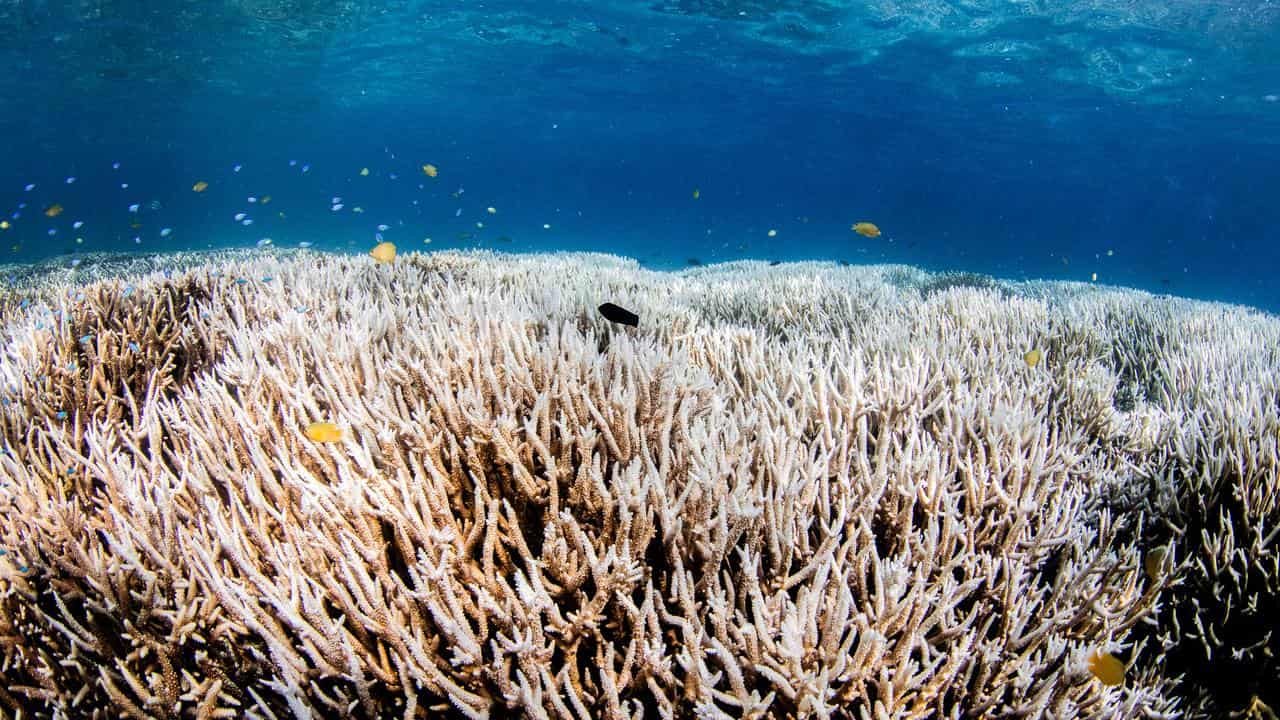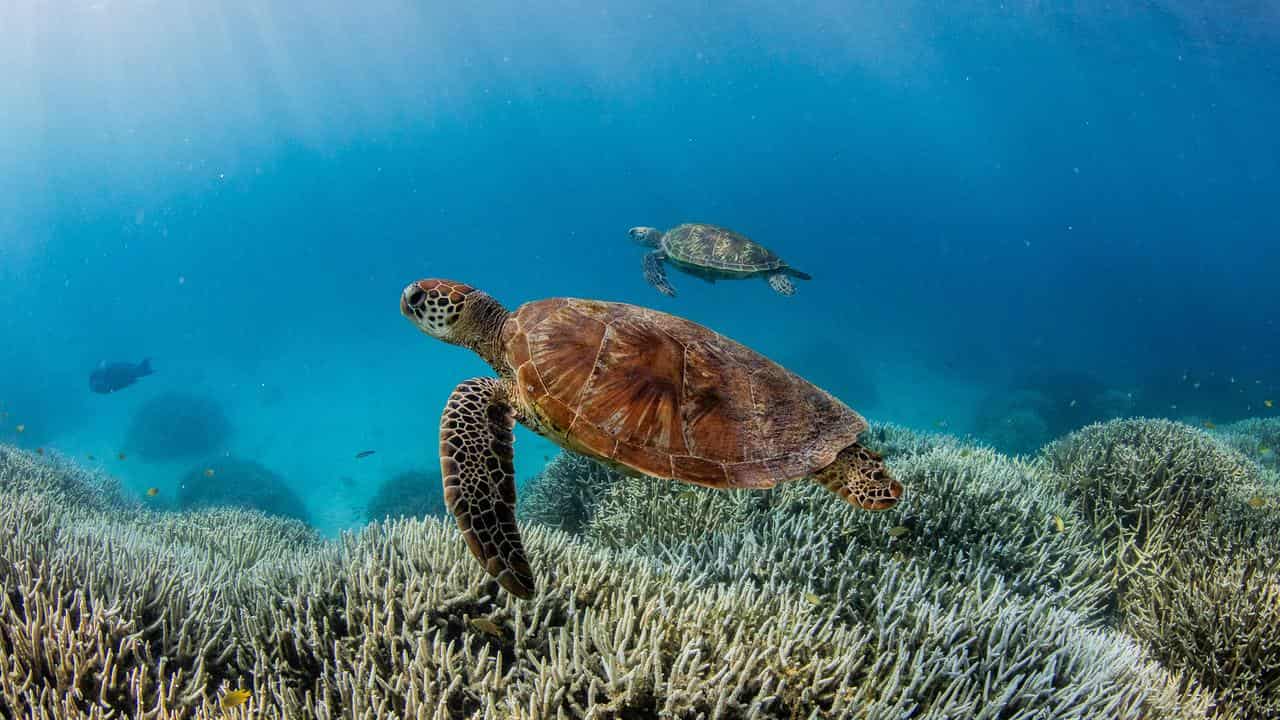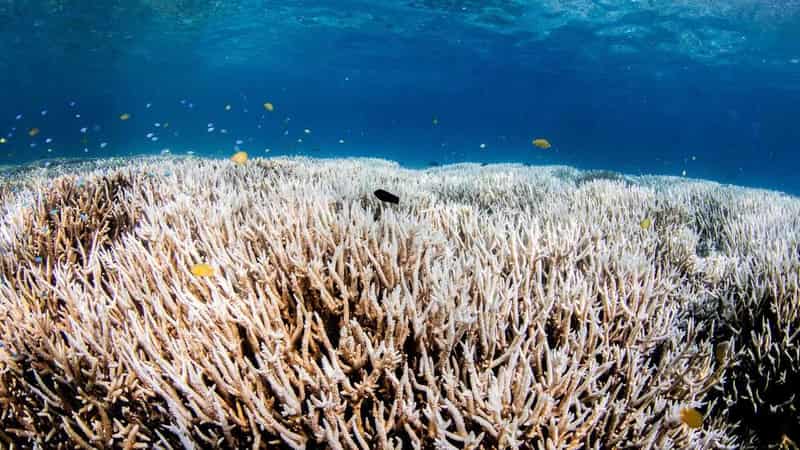
Coral cover was increasing across the Great Barrier Reef before climate change delivered another brutal blow last summer, scientists say.
The latest annual report from the Australian Institute of Marine Science's long-term monitoring program makes for bittersweet reading.
It charts small increases in hard coral cover over the past year or so, across all three regions of the reef.
But the gains may already have been lost after the reef suffered its fifth mass bleaching event in eight years last summer.
The timing of the surveys that underpin the report means the full effect of that devastating event won't be known for some time.
Many reefs were inspected before or during the marine heatwave, which peaked in March.
That means bleached corals - which can teeter on the brink for months - have been recorded as alive even though they may ultimately die.
Mike Emslie leads monitoring program and says the complete picture will slowly reveal itself when scientists begin new surveys in September.
But those conducted about the time the marine heat wave peaked have already provided ample evidence of coral mortality, especially in the southern section.
Some inshore reefs, near Gladstone for example, were bombarded with almost twice the amount of heat considered deadly for corals.
A full assessment of the bleaching event will be finished by the middle of next year but limited bleaching surveys at 36 representative sites provide a glimpse of what might be to come.
Of those reefs, 81 per cent had high, very high or extreme levels of bleaching, with the spatial footprint of the bleaching described as record breaking.
"In-water surveys conducted at the height of the event also confirmed that severe bleaching (whole colonies fully bleached white) was prevalent at 94 per cent of reefs," an analysis of the work says.
"And recent mortality due to intense thermal stress was present at 89 per cent of reefs across all three regions of the Great Barrier Reef."

Dr Emslie takes comfort from the increased coral cover across all regions of the reef, albeit without the full effects of the bleaching event and two cyclones being taken into account.
In the space of a year, cover in the north was up 3.7 per cent to 39.5 per cent, in the central region it was up 3.3 per cent to 34 per cent, and in the south it was up 5.1 per cent, to 39.1 per cent.
That's a record level of cover in the north and central regions since monitoring began 38 years ago.
"It tells us that the reef is still a healthy, thriving system and it still retains its resilience but that's tempered with the knowledge that we've just had one of the most widespread and serious mass coral bleaching events," Dr Emslie says.
"Disturbances are coming more quickly, they are bigger, they are more widespread and that leaves less opportunities for corals to recover.
"We need to take the strongest possible action we can to curb greenhouse gas emissions."









